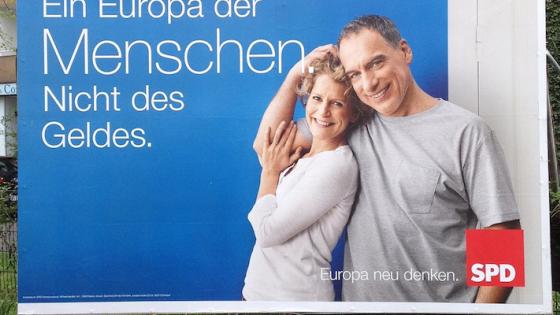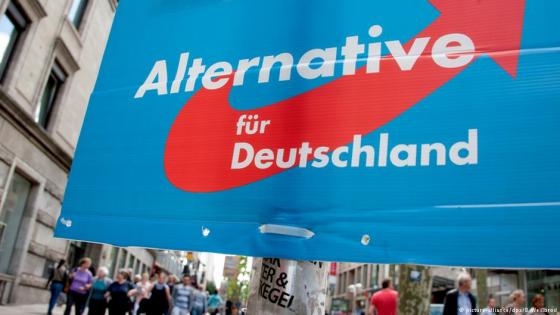First posted on:
openDemocracy, 1 June 2018
Because it embodies timeless values of equality, fairness, and respectful debate, social democracy bears a dual promise: domestic social justice and European unity. The post-war struggles of Germany’s Social Democratic Party (SPD) illustrate the difficulty in translating these admirable values into political practice. In a bid to keep itself electorally relevant, the SPD adopted policies that left many Germans behind. And once the euro was introduced, the SPD pursued a narrow national interest. Germany’s dominance in euro area governance induced other European social democratic parties to follow the SPD’s lead. Inevitably, Europe’s social democrats lost domestic support and European solidarity eroded.
In the closing years of the 19th century, the SPD’s Eduard Bernstein was in the vanguard of defining social democracy as a political movement that sought to achieve both material progress and social justice. The ground for such a political philosophy became particularly fertile after the upheavals of the Great Depression and WWII. But while other European social democratic parties, notably in Sweden, created national alliances and acquired political authority, after the war the SPD struggled for nearly a quarter century to gain the German chancellorship. Briefly, between 1969 and 1982, the SPD’s Willy Brandt and Helmut Schmidt were chancellors.
But buffeted by two oil price shocks, in 1973 and 1981-82, and unable to stem the rapid rise in unemployment, the SPD lost electoral favour. For 16 years, from 1982 to 1998, the SPD was consigned to the political wilderness while Chancellor Helmut Kohl of the rival Christian Democratic Union (CDU) reigned supreme. Kohl also lured SPD supporters by adopting some of the social justice agenda: more generous unemployment benefits and a new child-rearing allowance.
In 1998, the SPD experienced a modest revival under Gerhard Schröder as chancellor. In his second term, between 2002 and 2005, Schröder changed course. With little new to offer to promote social justice, he sought to attract the winners of rapidly spreading globalisation, believing that traditional working-class supporters would never desert his party. Schröder announced this die neue Mitte (‘the new centre’) approach with British Prime Minister Tony Blair (who called it ‘the Third Way’). Together, they promised to ‘modernise’ their economies by allowing more room for the operation of market forces.
Germany’s ‘Hartz reforms’
Schröder’s major initiative was the so-called Hartz reforms, which reduced benefits for unemployed workers and so pushed them harder to look for new jobs. As a result, workers who could not retain their privileged positions in Germany’s best-performing firms accepted low-wage temporary and part-time ‘mini’ jobs in the low-productivity services sector. Such workers fell into a trap of low earnings and increasing economic insecurity. Unsurprisingly, they steadily transferred their allegiance from the SPD to other parties, including what now is called the Left Party, which promised to work harder for workers’ protections and rights.
By creating divisions among different categories of workers, the SPD fractured the sense of “social solidarity and sense of shared national purpose” crucial for the political success of social democracy, as the political theorist Sheri Berman has pointed out.
The Hartz reforms, nevertheless, acquired a crucial narrative strength, and its variants spread throughout Europe. Such reforms, German and other European leaders asserted, helped Germany strengthen its export competitiveness. Nothing, however, was farther from the truth, as I explain in my book, EuroTragedy: A Drama in Nine Acts. German manufacturing companies remained internationally competitive because they deployed time-honoured methods of innovation while outsourcing parts of their production to Eastern Europe. But the mythology of the Hartz reforms’ magic took hold. Social democrats throughout Europe felt obliged to pursue the same politically divisive strategy and, inevitably, their own sense of collective national purpose steadily frayed.
The ‘neue Mitte/Third Way’ declaration also made a bold claim to pursue European solidarity (“We share a common destiny within the European Union”). Schröder, for his part, chanted a fuzzy mantra of European ‘political union’ to lay claim to European credentials. Schröder’s vice chancellor, Joschka Fischer of the Green Party, called for a bold but completely unrealistic European vision. European nations, he proposed, should sign a constitutional treaty to create a European federation.
But Schröder aggressively promoted a narrow German national interest in European affairs. He fought for national voting rights in the Council of Ministers. To protect the German automaker Volkswagen, he blocked a European Union proposal for the reform of corporate takeover legislation. Schröder’s parochial interest was motivated by his allegiance to Volkswagen, on whose supervisory board he had sat as governor of the state of Lower Saxony. And while Schröder rightly opposed the European Central Bank’s excessively tight monetary policy and the European Commission’s mindless pursuit of fiscal austerity, he sought only a German exemption rather than a constructive change in rules.
Having alienated its domestic base, the SPD lost electoral ground in the 2005 election, and returned as the CDU’s junior partner in a grand coalition under Chancellor Angela Merkel. When the global financial crisis erupted in 2007, nations of the euro area—those sharing Europe’s single currency, the euro—were faced with a crucial test of European solidarity. Tied together by the single currency, would the strong nations support the weak?
The SPD’s Peer Steinbrück, as German finance minister, nixed proposals to create European financial firewalls to limit the spread of financial crises. Moreover, by then, Germans had overcome their temporary turn-of-the-millennium economic funk, and Steinbrück returned to the traditional German insistence on fiscal austerity. At the height of the global financial crisis in 2008, he mocked British Prime Minister Gordon Brown’s impassioned plea for globally coordinated fiscal stimulus. So poor was Steinbrück’s judgment that Merkel overruled him and joined the essential stimulus effort.
In the 2009 election, with nothing to offer by way of either national or European ideas, the SPD’s vote share plummeted to a historic low of 23%.
Austerity across Europe
As the euro area’s never-ending crisis dragged on, weary citizens in member nations looked again to social democratic parties to jump-start an equitable growth process. Thus, the 2012-2013 election cycle gave Europe’s social democrats an opportunity for political revival. In a wave that started in France and then continued into Italy, the Netherlands, and Germany, social democratic parties either gained government leadership or emerged as important coalition partners. Besides promising domestic economic relief, social democratic leaders—French President François Hollande, Italian Prime Minister Enrico Letta, and German Vice Chancellor Sigmar Gabriel—stirred the hope that they would help reinvigorate an agenda of European unity.
But notwithstanding their rhetoric, the social democrats did not deliver. The SPD’s failure is noteworthy. At home, in coalition with the CDU, the SPD did little to bring back its former supporters, many of whom, feeling abandoned, had stayed away from the polls. Although the German economy performed much better than other euro area economies, real wages stagnated for too many Germans and economic inequality increased inexorably.
On European matters, the CDU-SPD coalition remained an unrelenting advocate for fiscal austerity. French President Hollande and Italian Prime Minister Matteo Renzi did put up a brave fight against the grinding austerity, but they fought for minor concessions rather than challenging German orthodoxy. With the European Central Bank offering only grudging monetary policy relief, the overall policy squeeze delayed economic recovery, which severely hurt Europe’s most vulnerable citizens.
The SPD’s intellectual influence was particularly insidious in the area of ‘labour market reforms’. In October 2014, Renzi announced what was to be his singular achievement: the Jobs Act. Much like the Hartz reforms, the act weakened workers’ rights and, despite claims of protective provisions, reinforced the tendency toward jobs with insecure tenures. Italian governments before Renzi’s had implemented similar reforms, which indeed increased employment. But the evidence from the past reforms was that they dulled the incentives for employers and employees to increase productivity and, hence, contributed to the steady decline in Italian productivity growth. Renzi’s Jobs Act seems destined to prolong Italy’s near-zero productivity growth.
Social democrats thus threw away the opportunity presented to them in the 2012-2013 electoral cycle. They failed to promote a domestic agenda that brought hope to globalisation’s losers, especially those who lacked necessary education and skills. Unsurprisingly, social democratic parties were clobbered at the polls in 2017-2018. They lost to protest parties that spoke more directly to voters’ economic and cultural anxieties.
European ‘solidarity’?
The social democrats’ European promise also continued to prove false. In a particularly jarring instance, in March 2017, the Dutch Labour Party’s Jeroen Dijsselbloem gave voice to a growing north-south divide in the euro area. He reprimanded governments and citizens in southern euro area countries for their profligacy: “You cannot”, he told them, “spend all the money on women and drinks and then ask for help.” In the ensuing outrage over the words he had used, Dijsselbloem defended himself. European ‘solidarity’, he insisted, required adherence to budget rules on debt and deficit limits.
In Germany, the SPD leader Martin Schulz flaunted an eccentric pro-Europeanism. In December 2017, he pledged that, as a key member of a prospective Merkel-led coalition government, he would enforce adoption of a European constitution by all member states. Not only was Schulz’s idea absurdly unrealistic, he misunderstood his domestic constituents, whose priorities lay in actions at home. When, at a party gathering, Schulz spoke of his conversation with French President Emmanuel Macron to promote a grand European strategy, the members groaned. Schulz’s plans and political fortunes nosedived.
The SPD’s Olaf Scholz, the new German finance minister in the latest CDU-SPD coalition, has repeatedly reaffirmed his party’s commitment to unify Europe. But he has acted in the mould of the previous SPD finance minister, Peer Steinbrück. Domestically, Scholz has doubled down on the need for continued budget surpluses, negating any hope that government investment and social spending will spur a broadly inclusive domestic growth process. On the call for a euro area budget by French President Emmanuel Macron, Scholz has bluntly stated that a German finance minister—no matter the party affiliation—must protect German taxpayer money[EN2] from fiscally irresponsible euro area member country governments.
Throughout Europe, social democrats are gripped by an intellectual laziness that risks turning into a terminal stupor. They can have little hope of retrieving lost support in new domestic alliances without an energetic agenda for national revival that creates more opportunities and fosters a sense of fairness. They need new ideas to raise taxes to pay for extending the reach and quality of education and health care to economically vulnerable citizens.
This history also makes it clear that social democracy cannot be a unifying European force. Social democrats across Europe do share common values of fairness, justice, and an open society. But today, such values are subordinated to the requirements of economic policy coordination in support of the euro. And given Germany’s economic dominance, the de facto focal point of European policy coordination is German policy preferences. As such, the euro’s guiding ideology requires weaker workers’ rights and protections alongside a commitment to fiscal rectitude.
The euro
The euro has proved to be fundamentally at odds with social democracy. In its most successful Swedish version, social democracy has been a nationally legitimate social contract to redistribute resources among those who share historical and cultural ties. The straitjacket of the euro ideology, however, places the burden of national competitiveness on lower workers’ wages, and it enforces ill-timed and excessive fiscal austerity measures that limit options in domestic economic policymaking. The euro, therefore, prevents the formation of domestic alliances that could create “a sense of national purpose”, as described in the ‘neue Mitte/Third Way’ declaration. The policy straitjacket is reinforced by the presumption that each national ship must face the risk of sinking to its own bottom, a presumption that undermines the Blair-Schröder call for a “common destiny within the European Union.”
European social democrats have continued to haemorrhage support. The conclusion seems sadly inescapable. On its current course, unable to generate a domestic consensus and powerless to counter the narratives and priorities dictated by the euro, the political practice of social democracy will continue to fail at home while divisions among member nation states deepen.



